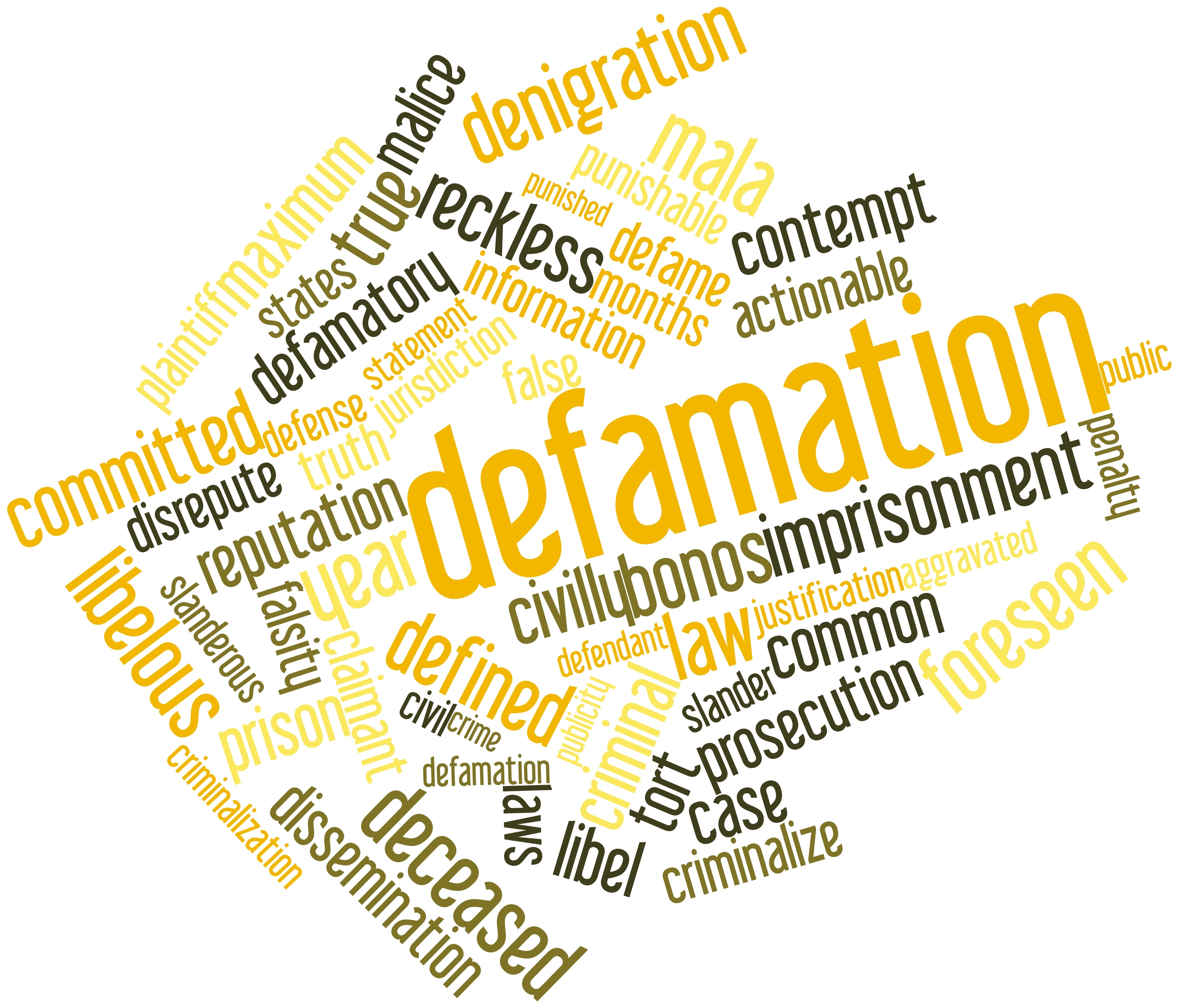DEFAMATION LAW IN INDIA
2020 AUG 6
Mains >
Polity > Institutions/Bodies > Fundamental rights

WHY IN NEWS:
- In a landmark ruling, the Madras High Court recently held that public servants and constitutional functionaries cannot be allowed to misuse the law of criminal defamation by using the State as a tool to initiate defamation proceedings against adversaries.
LAWS RELATED TO DEFAMATION IN INDIA:
- Defamation refers to destroying the reputation of an individual or organisation by means of slander (speech), libel (written) or both.
- Slander: Means to make a false spoken statement that causes people to have a bad opinion of someone.
- Libel: Means to publish a false written statement that causes people to have a bad opinion of someone.
- Defamation in India is both civil and criminal offence:
- CIVIL DEFAMATION:
- Civil defamation in India is based on tort law
- Under civil law, the defamed victim can move either the high court or trial court.
- The victim can seek damages in the form of monetary compensation from the accused
- CRIMINAL DEFAMATION:
- There are 2 sections under the Indian Penal Code (IPC) that deals with criminal defamation
- Section 499: deals with what constitutes defamation
- Section 500: deals with punishment for defamation
- Defamation is a non-cognizable offence i.e police cannot register a case and start an investigation without the court’s permission. Defamation is a compoundable offence i.e criminal court can drop the charges if the victim and accused enter into a compromise (even without the court’s permission).
SUPREME COURT ON DEFAMATION LAW
- The Supreme Court of India, in the Subramanian Swamy vs Union of India, 2014, upheld the constitutional validity of the criminal defamation law, underlining that an individual’s fundamental right to live with dignity and reputation “cannot be ruined solely because another individual can have his freedom”.
- The ruling noted that “the right to freedom of speech and expression is not an absolute right” and has to be “balanced with the right to reputation” which is protected under Article 21 of the Constitution.
- The court held that criminalisation of defamation to protect individual dignity of life and reputation is a “reasonable restriction” on the fundamental right of free speech and expression.
ARGUMENTS AGAINST CRIMINALIZING DEFAMATION
- Against the spirit of Article 19:
- Criminalizing defamation has a harsh effect on the right to freedom of speech and expression provided under Article 19
- It is an ideal weapon for powerful individuals to silence critical or inconvenient speech.
- It is a colonial-era law introduced by the British regime to suppress political criticism.
- Even truth is not a defence:
- Even if a person has spoken the truth, he can be prosecuted for defamation.
- Under the first exception to section 499, the truth will only be a defence if the statement was made for the public good, which is a question of fact to be assessed by the court.
- It is an arbitrary and overbroad rule that deters people from making statements regarding politicians or political events even which they know to be true
- Lead to state high-handedness:
- The state uses it as a means to coerce the media and political opponents into adopting self-censorship and unwarranted self-restraint.
- Implications for democracy:
- Only the “imputation” or accusation is enough to be interpreted as harming the reputation of a person.
- Thus even an ironical statement can amount to defamation and a criminal suit can be filed even for political speech which is the most protected speech in a democracy
- The process is itself a punishment:
- The accused has multiple defences open but they are available only after the trial commences.
- Hence an accused person has to undergo the long-drawn-out trial process which in itself a punishment.
- Several instances of misuse:
- The criminal provisions have often been used purely as a means of harassment.
ARGUMENTS IN FAVOUR:
- The reputation of one cannot be allowed to be crucified at the altar of the other’s right of free speech.
- So there is no point in declaring that the present law is unconstitutional.
- There is a need to strike balance between article 19 and article 21.
- Reasonable restrictions:
- Defamation is one of the reasonable restrictions on freedom of speech & expression under Article 19(2).
- Misuse of law is not a justification for its withdrawal:
- A mere misuse or abuse of law, actual or potential, can never be a reason to render a provision unconstitutional.
- Free and fair elections:
- Absence of criminal liability will give rise to hate speeches during elections, and it may negatively affects fair elections
- Increasing threat of cyber-bullying:
- It is argued that online defamation in the Internet age can be effectively countered only by making it a criminal offence
WAY FORWARD:
- The offence of criminal defamation shall not be made out unless it has been proven that the impugned statements are false
- Public authorities, including police and public prosecutors, should take no part in the initiation or prosecution of criminal defamation cases
- Public servants and constitutional functionaries must be able to face criticism since they owed a solemn duty to the people.
- Supreme Court in Subramanian Swamy case underscored that criticism was not defamation, and hence trial court must be “very careful” in scrutinising a complaint before issuing the summons in a criminal defamation case.
PRACTICE QUESTION:
Q. “The right to freedom of speech and expression is not an absolute right and has to be balanced with the right to reputation”. Comment
